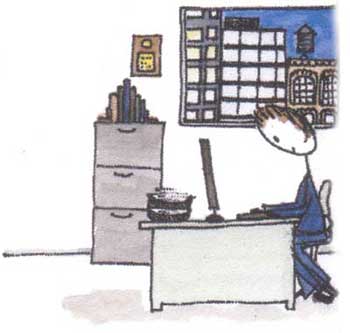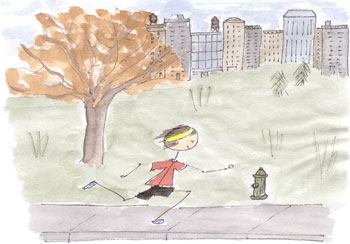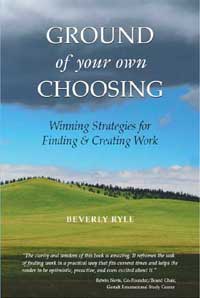 choicepoints ...for people in career and life transition situations where self-respect, a positive attitude, and staying hopeful and engaged are essential for moving toward a new beginning
choicepoints ...for people in career and life transition situations where self-respect, a positive attitude, and staying hopeful and engaged are essential for moving toward a new beginning
Skaneateles Takeaways
 Because October's post spoke to so many readers about the need for renewal, and because the upcoming holiday season offers the opportunity for time off to regroup for the new year, I have decided to share my takeaways from this year's trip to Skaneateles sooner than I had originally planned.
Because October's post spoke to so many readers about the need for renewal, and because the upcoming holiday season offers the opportunity for time off to regroup for the new year, I have decided to share my takeaways from this year's trip to Skaneateles sooner than I had originally planned.
My time at the lake this year was about being in the here and now. I try to do this at home, but being away frames it differently.
There's the packing and the unpacking, the seven hour trip there and back, the joy of arriving and the sadness of leaving. Going to the same place every year has sharpened my awareness of these dichotomies, and I know the alternating rhythm well enough that sway with it immediately.
Resume Magic or Futility?
 Recently I was on my way home from a visit to a friend in Philadelphia, and after I boarded the train at 30th Street Station and settled into my seat, I noticed a man in his mid-fifties across the aisle from me.
Recently I was on my way home from a visit to a friend in Philadelphia, and after I boarded the train at 30th Street Station and settled into my seat, I noticed a man in his mid-fifties across the aisle from me.
His well-dressed, distinguished look suggested to me that he was probably a senior executive en route to an important business meeting in New York, with maybe a round or two of golf or an afternoon of sailing in Long Island Sound on the side.
From the weathered, high-quality leather briefcase beside him on the seat, he took out a thick book entitled, Best Resumes, and with a sigh I added “unemployed or afraid of becoming so” to the description of him I had been forming in my head.
Skaneateles Redux
 Note: this is a reprint of a newsletter column which appeared November 10, 2006. I really am in Skaneateles at the moment, and I'm looking forward to sharing the strategic lessons I learn this year with you in a later post. Bev.
Note: this is a reprint of a newsletter column which appeared November 10, 2006. I really am in Skaneateles at the moment, and I'm looking forward to sharing the strategic lessons I learn this year with you in a later post. Bev.
I'm sitting in the cozy living room of a house perched on the side of a steep hill overlooking Skaneateles Lake. (Pronounced "skinny-atlas," it's the second easternmost of New York's Finger Lakes). From my comfortable wide-armed mission chair I have a 180-degree view of the calm, glistening water through the windows that surround me on three sides. There is no sound except for the gentle lapping of the waves, the chatter of a kingfisher, and the clicking of the keys on my computer.
I am on retreat from the office, from my complicated schedule, from being flat out.
My decision to come here was a strategic decision, and I use the word "strategic" intentionally for three reasons.
Attitude Sanitizer
 Sitting across the table from me is a very bright, articulate, mature woman with an underutilized law degree.
Sitting across the table from me is a very bright, articulate, mature woman with an underutilized law degree.
She has a vision—a family law practice to serve an ethnic community with which she has a shared heritage, and for whom she has been a volunteer advocate for years.
She is at a point in her life where she wants to claim her professional status in ways which honor her social consciousness, but the opinions of others have stopped her in her tracks.
"There are so few encouraging voices," she says. Her head droops and she begins a litany of the dispiriting comments she's heard from people with whom she has shared her goal—the economy is awful, you'll be competing with young attorneys right out of law school who will work for nothing, immigration law is very complicated, etc.
Building upon this foundation of negativity, she adds obstacles of her own: "Maybe I don't have the skills, the experience, or the stamina ...."
I have a strong urge to jump in and remind her of her many positive attributes, but I keep quiet and let her finish. When I speak I don’t argue with anything she has said, but softly observe, "It's all about working the process. When we make a choice to pursue a particular goal, our task is simply to do our very best to stay in the process of working toward it, which includes not abandoning it prematurely because of what ‘they’—whoever they happen to be—have to say.”
Business Book Club
 A few months ago I acted on a goal I have had for a long time—to start a business book club.
A few months ago I acted on a goal I have had for a long time—to start a business book club.
Although we have only met a few times, the coming together of this like-minded group of professionals has been more delightful than I could have ever anticipated.
Instead of being limited to my own conclusions on a particular book, I now have access to the ways that others with different backgrounds and expertise take in, interpret and utilize the same information.
It’s like arriving late at night to a vacation destination you’ve only seen in brochures and waking up in the morning and opening the curtains to find a beautiful, expansive view of the world your imagination could never have fully pictured.
Being Self-Directed
 With his usual talent for organization and clarity, Daniel Pink, the author of Drive, offers the following tweet-sized summary of the book: "Carrot and stick are so last century. Drive says for 21st century work we need to upgrade to autonomy, mastery and purpose."
With his usual talent for organization and clarity, Daniel Pink, the author of Drive, offers the following tweet-sized summary of the book: "Carrot and stick are so last century. Drive says for 21st century work we need to upgrade to autonomy, mastery and purpose."
In these challenging economic times, it may seem strange to suggest that people are not primarily motivated by external rewards, but Pink makes a compelling case for the fact that internal motivation is what is really driving us, once basic living needs are met.
If you don't believe this can produce something of real value, he is saying, just consider the many open-source Internet initiatives, e.g., OpenOffice.org, Mozilla Firefox, Wordpress, Linux, etc., with new ones cropping up almost every day, run by volunteers who have chosen to put their energy where their authenticity lies.
Mini-Mart Surprise
 Summertime and the living is easy—but not for a Mini-Mart cashier at a rest stop on the Mass Pike.
Summertime and the living is easy—but not for a Mini-Mart cashier at a rest stop on the Mass Pike.
That was the assumption I made when I stopped there for an iced coffee on a hot, sunny Saturday last month on my way to visit family in Connecticut.
The store was packed. A long line of customers in a hurry to be somewhere else snaked its way around the junk food displays, inching slowly toward the older woman on the other side of the counter.
"What an awfully hard job," I thought, as I watched her selling lottery tickets and sodas.
The weather outside is beautiful, and you're stuck inside. You're on your feet all day, under constant pressure from impatient, sometimes rude people. You're exhausted at the end of your shift and you don't have much of in the way of material reward to show for it.
But even as I was creating this scenario in my head, I still was able to take in the attentive cheerfulness with which she waited on those who preceded me.
Strength Training

The US government reports two different unemployment statistics. The one we are most familiar with is the one most talked about in the news media, something called the "U-3 unemployment rate." It currently hovers just under 10%.
There is also the less well-known "U-6" rate, which is now over 17%. It includes what the Bureau of Labor Statistics calls "involuntary part time, underemployed workers" and "discouraged" workers who have stopped looking.
For people struggling to stay positive after a year or more of unemployment, I'm sure that even the higher number must seem too low.
Yet there are many who know what discouragement feels like and have chosen not to give up.
A Conversation with Beverly Ryle I: Ground of Your Own Choosing
"Looking for work using the old methodology is a form of insanity."
I talk about how I came to write the book, Ground of Your Own Choosing, and discuss its premise, that everything about the world of work has changed—except how we go about finding it.
A Conversation with Beverly Ryle II: the Resume
"If you are driving your professional life by an 8 ½ by 11 sheet of paper, you are not doing all you can."
The obsession with the resume means a work-seeker is putting all his eggs in one rather fragile basket and overlooking alternative ways of communicating his value.
A Conversation with Beverly Ryle III: Empowerment
"I'm trying to get people to be comfortable enough with looking for work on an ongoing basis, because that's what a business owner has to do."
To succeed in today's environment, we have to think of ourselves as if we were small business owners.
Fear Funk

Sometimes it comes on gradually—the pressure you feel to find work, get your business in the black again, or restore stability to your financial future accumulates, causing sleepless nights or mornings when you sit at your desk not knowing what to do next.
Or there may be a trigger—one rejection too many, a bill you can't pay, or a depressing headline saps your belief in yourself and better days ahead, and you have that sinking sensation of fear taking you over for a few days or a week or longer.
Fear is a natural reaction to change, and you can expect it to be particularly active when your work-life, that part of your existence that provides sustenance, purpose and identity, has been shaken like a snow globe.









